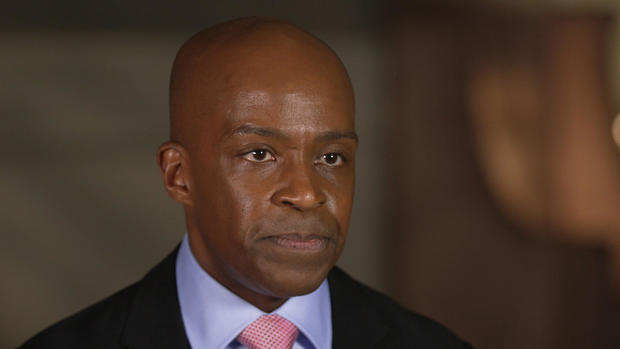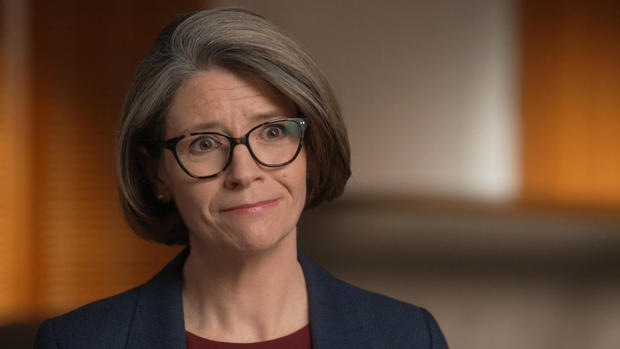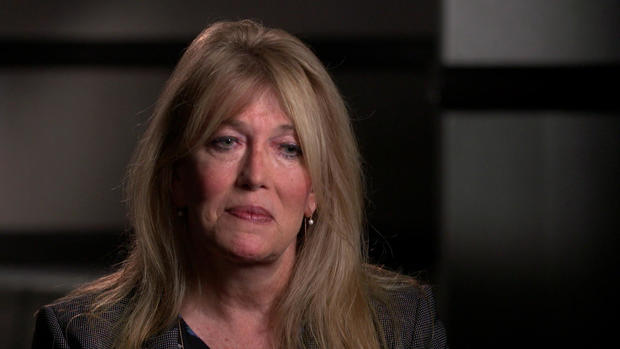This week on 60 Minutes, correspondent Lesley Stahl reported on the health care challenges facing the transgender community, amid a spate of legislation being introduced in states across the country that would limit care for transgender youth.
The report, titled "Transgender Healthcare," introduced the 60 Minutes audience to a group of people who call themselves "detransitioners," those who took steps to transition but chose to reverse the process. Their stories highlight an issue of increasing concern for some providers in the transgender healthcare field. They said some patients are not being properly evaluated in accordance with professional guidelines before being prescribed hormone treatments or approved for surgery.
Stahl and the producing team of Alexandra Poolos and Collette Richards began reporting on the story in December, methodically contacting doctors, clinicians, activists, transgender people and their families, and people who detransitioned.
"I think we spoke to more people on this story than any other story I can remember reporting on in my whole time at 60 Minutes," Stahl told 60 Minutes Overtime. "We wanted to be thorough. We wanted to be fair. And we wanted to understand every aspect of this story. And it was really focused on health care. That was the primary idea for the story. Health care."
Stahl told 60 Minutes Overtime that she cannot remember another story she has worked on at 60 Minutes where comments and criticisms began surfacing from advocates before the piece aired.
"We were concerned that the groups that oppose transgender people might try to weaponize our story and use it against transgender people," Stahl said. "Some of the activists who reached out to us told us they were worried about it too. Our story was really about health care. And we wanted to keep it focused on health care and not make it a political story."
Alphonso David, an advocate for the transgender community, a LGBTQ civil rights lawyer, and the president of the Human Rights Campaign (HRC), told Stahl in an interview that he was concerned that reporting on those who choose to detransition could be "taken out of context [and] could further victimize and marginalize" the transgender community.
"Bringing a story to light about detransitioning without talking about the vast majority of people who positively transition, would cause concern because it sends a message," David said to Stahl. "We need to also elevate the positive stories of people who successfully transition."
Dr. Lee Savio Beers, a pediatrician, professor, and the president of the American Academy of Pediatrics told 60 Minutes it's vital to "help dispel the myths about what gender-affirming care is and isn't."
"I also think it's really important, no matter how we do it, and in whatever setting, to make sure that we send a message to transgender youth and gender-diverse youth and their families that they matter, that their experiences matter, that we care about them and we want them to get the best medical care, we want them to get the best education, we want them to get the best support from their families and their communities," Beers said to Stahl. "And I think that has to be our north star."
Stahl also interviewed Dr. Marci Bowers, a gynecologist who has performed more than 2,000 transgender surgeries and who transitioned herself in the 1990s. Bowers said that it is an issue if someone who transitioned comes to regret the decision, but noted that it does not "damn the entire process."
"What it should do is cause pause and reemphasize the fact that our informed consent model has to be very, very good," Bowers said. "And we also have to be certain that people who are providing care do so under the standards of care that have been established."
The full report that aired Sunday on 60 Minutes can be seen below. 60 Minutes viewers can also find a resource page on 60MinutesOvertime.com.
The video above was produced by Matt Polevoy and Keith Zubrow. It was edited by April Wilso
© 2021 CBS Interactive Inc. All Rights Reserved.







